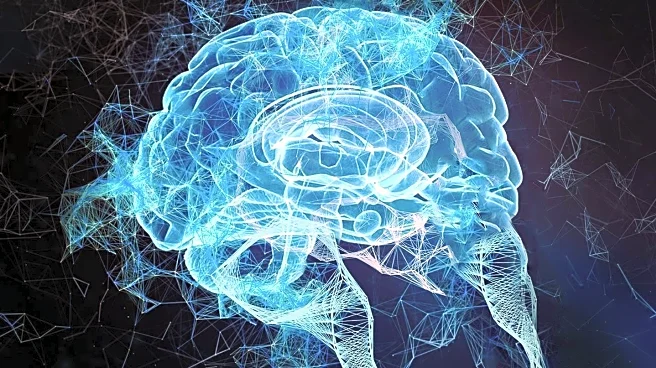What's Happening?
Recent research has uncovered that certain layers of the brain's somatosensory cortex, responsible for processing sensory information, may actually strengthen with age, contrary to the common belief that brain degeneration is inevitable as one grows older. The study, conducted by neuroscientists including Esther Kühn from the German Center for Neurodegenerative Diseases, utilized high-resolution MRI scans to examine the cerebral cortex of 61 adults aged 21 to 80. The findings revealed that while some layers of the cortex thin with age, the middle and upper layers, which are involved in processing tactile stimuli, were thicker in older individuals. This suggests that the brain's neuroplasticity, or its ability to adapt and reorganize, remains active even in later years.
Why It's Important?
This discovery has significant implications for understanding the aging process and the potential for maintaining cognitive function in older adults. The research challenges the assumption that reduced brain volume equates to diminished function, highlighting the brain's capacity for adaptability. This could influence future approaches to cognitive health, emphasizing the importance of mental stimulation and engagement in activities that promote brain health. The findings suggest that regular use and stimulation of certain brain regions can preserve their functionality, offering a more optimistic outlook on aging and cognitive decline.
What's Next?
The researchers aim to further explore the mechanisms behind this adaptability and how it can be harnessed to promote cognitive health in aging populations. Future studies may focus on identifying specific activities or interventions that can enhance neuroplasticity and potentially slow down or reverse age-related cognitive decline. This could lead to the development of targeted therapies or lifestyle recommendations aimed at preserving brain health in older adults.
Beyond the Headlines
The study also raises questions about the broader implications of neuroplasticity and how it can be leveraged to improve quality of life for the elderly. Understanding the factors that contribute to the thickening of certain brain layers could inform strategies for preventing or mitigating neurodegenerative diseases. Additionally, this research underscores the importance of lifelong learning and mental engagement as potential tools for maintaining cognitive vitality.










